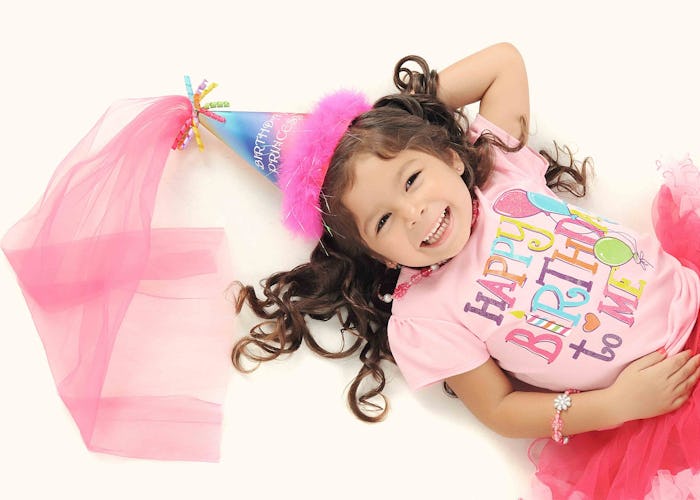Life

7 Early Signs Your Kid Belongs On Stage
When raising kids, it can be hard to figure out what they're interested in. It's easy for children to jump from one hobby to the next, from one obsession to another. So how can you tell if your child really loves something? You often hear parents refer to their children as "natural-born performers" or say that they love the spotlight. That's because there are early signs your kid belongs on stage, and if you pay close attention, you'll be able to see them.
My mother claims I've been dramatic since the day I was born. She also adds that my projection abilities have always been impressive, starting with how loud I wailed when I came out of the womb. But it was more than just my ability to command attention that clued her in to the fact that I was going to star in production after production on stage. Determining whether or not your child belongs on stage, or whether you want them to belong on stage can be tricky. Paying attention to a combination of things, including how they fare in daily activities, what kind of questions they ask you, and how they express their emotions, you may find that some children really are natural born actors. From how well they sell those crocodile tears, to how they react to to situations big or small, read on to discover the early signs your child belongs on stage.
1They Observe Others Emotions
Though most parents think that the loudest children are the ones who will wind up in the spotlight, it's often the children who are keen to observe interactions between others that find success on stage. According to Very Well, observant children are often gifted children. And those who are passionate about learning about people, emotions, and pay attention to those things are often children who can transfer those learned qualities into a life on stage.
2They Channel Experiences For Emotion
Edith Meeks of HB Studio told Backstage that empathy, sensitivity, and authenticity were all characteristics of extraordinary artists. Rather than children who let their emotions get the best of them, children who are innately in tune to other peoples emotions, who can channel not only their experiences but the experiences of others to convey emotions, are children who are a step ahead of the rest.
3They Pay Attention To More Than Words
Of course, dialogue can tell you a lot about a situation, a scene, or a child, but according to Denise Simon, children who belong on stage pay attention to more than just their words. It's about the full package for them, about the entire story, including a range of emotion, their body language, and how they react to everything around them.
4They Use Their Imaginations
According to acting coach Ted Bard, great actors are born with highly developed imaginations. This means that they don't just play pretend, they really believe. "These children have an innate inclination to live, behave, and do truthfully under the given set of imaginary circumstances," Bard told Backstage. If your child fully immerses themselves in the world of make believe, and their imaginary world is fairly realistic, you may have a performer on your hands.
5They Play Off Of Others Emotions
In an interview with The Seattle Times, actor Morgan Freeman said, "acting is reacting." You'll hear directors, coaches, performers, and more say the same thing. If your child isn't just dramatic, but is especially gifted at reacting to others, then your child will do well on stage.
6They Ask Why
One of the ways children learn as they grow up is by asking questions. Why questions, especially, are at the root of most actors performances. In books and plays alike, understanding a character's motivation is at the heart of most actions and believable sequences, according to Writer's Digest. If your child asks you a lot of why questions, and wants to understand why someone does the things that they do, they're already intuitive to character motivation, and will have an easy time discovering character motivations on stage.
7They Live For Rehearsing
Acting coach Joanne Baron believes that children who are willing to put in the work and enjoy and dedicate themselves to rehearsing are children who belong on stage. In an interview with Backstage, she referenced legendary violinist Itzhak Perlman being asked about being a master of his craft, saying that "his answer was that regardless of any inclination or natural talent or ability anyone is blessed to be born with, true craft is achieved only through rigorous study and the development of technique." Though some children are born with a natural inclination for the stage, if they don't have the interest in the work that goes into it, they may never flourish as a performer.